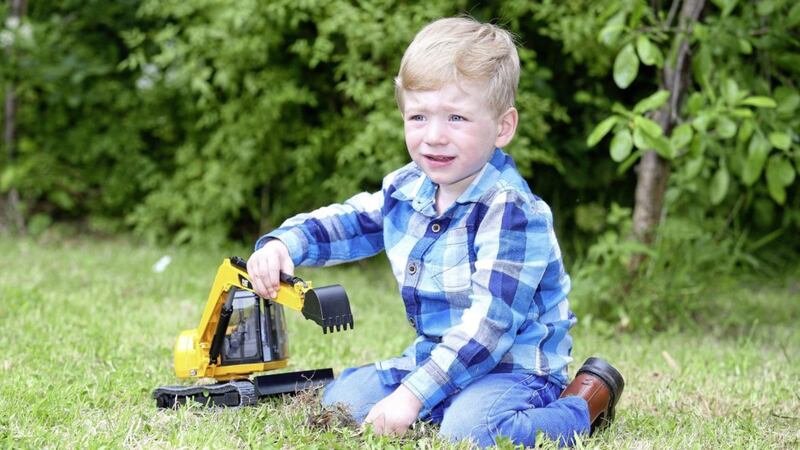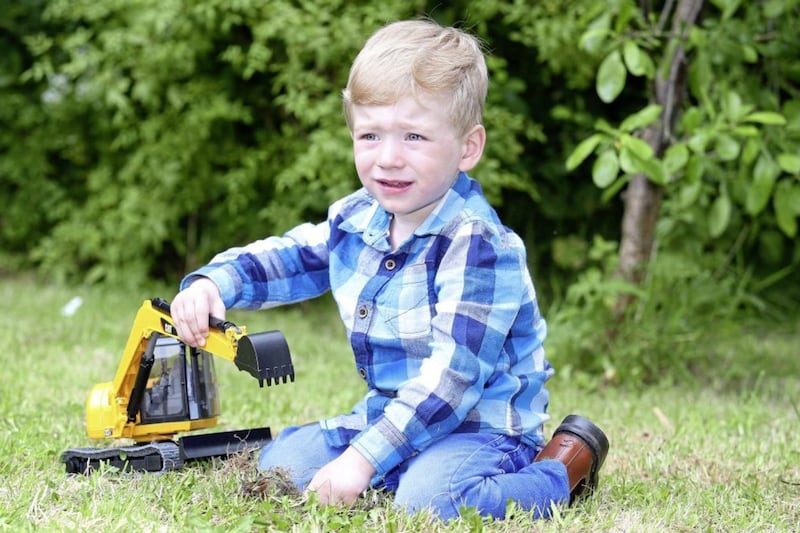IN THE 1980s pioneering research led by Belfast doctor Professor Henry Halliday led to the development of a therapy that involves sourcing a substance essential for premature lungs to work properly – it was to save the lives of millions of the tiniest, most vulnerable babies.
The most common lung problem in a premature baby is respiratory distress syndrome (RDS), because the lungs do not usually begin producing surfactant, a substance that keeps their tiny air sacs open, until about the 30th week of pregnancy.
In the original therapy, artificial surfactant was derived from the lungs of pigs; now, however, Belfast is once again at the forefront of neonatal research for premature babies with underdeveloped lungs by spearheading a new synthetic surfactant, which no longer relies on animal products.
The first in-human trial of a new synthetic product has been used to treat 40 babies, 10 of whom were recruited in the Belfast Health and Social Care Trust neonatal unit and are carefully monitored by the Belfast Children’s Clinical Research Network.
One of the first babies to receive the synthetic surfactant was Lewis McIlroy from Magheramourne, Larne. Now a healthy, energetic two-and-a-half who enjoys helping his dad on his dairy farm, Lewis had a dramatic arrival in the world three months early, weighing just 3lb 11oz.
"When Lewis was born he was taken straight away to neonatal intensive care unit and I was wheeled up to see him that night. It was very distressing, it's not the way you envisage your labour will be. We thought we were going to loose him," recalls his mother Margaret, who had pre-eclampsia, a potentially dangerous condition that can occur during pregnancy.
The next morning, Lewis's parents were visited by Dr David Sweet, a consultant neonatologist in the Royal Maternity Hospital, Belfast, who explained that Lewis was "critically ill" and required surfactant.
Margaret, a nurse practitioner herself, consented for Lewis to receive the new synthetic version as part of the clinical trials.
"You are anxious, but Lewis had all the scans and tests down prior to administering the surfactant and we were informed at all times about what was happening," she says now. "It’s great there is such research going on in our local hospital. It’s great to help with such innovation and at the end of the day if it hadn’t worked, they were going to give him a second dose of the original surfactant.
"It's only by God's grace Lewisis here today; we are so thankful. He's never looked back. Developmentally he's reached his milestones and he isn't even asthmatic."
Prof Halliday, who was in charge of the 1980s trial at the Royal Maternity Hospital, and is now enjoying retirement, is delighted by the latest research.
“When I started working, premature babies who had respiratory difficulties nearly all died, despite supporting them with assisted ventilation," he recalls.
The first baby in the UK to receive surfactant, in February 1985, was from Belfast and every Christmas his mother writes to Prof Halliday to update him on his life.
"He's a computer scientist, living in Toronto in the moment and has recently got married. His fitness is perfect – in fact he's a champion ballroom dancer," the medic adds.
He describes the original animal-sourced therapy as "a very expensive process" which, because of its nature, could have varying outcomes.
"This is a step further forward in the development of a good drug to treat respiratory problems in premature babies," he says of the synthetic equivalent.
Dr David Sweet, who is currently leading the trials in Belfast, says the development could "herald a new era" worldwide and provide a superior product, as well as reducing costs.
The process of delivering the drug involves putting a tube in the baby's windpipe and squirting the small amount of liquid into the lungs; the effects are immediate.
"It’s like a miracle cure," says Dr Sweet, who explains that manufacturing the product synthetically means production can be up-scaled.
Initial results of this clinical study have been published and early indications are very promising. The synthesised surfactant will now be used in larger trials of smaller sicker infants, paving the way for new possibilities for the tiniest of children across the world.
“Overall the trial showed that the drug was safe and just as effective as the previous animal surfactant. This is the first step, but a very important one," Dr Sweet says.



